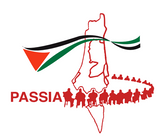
Guide to Muslim and Christian Holy Places in Jerusalem
$65.00
Jerusalem is one of the oldest and most important cities in the world. It is regarded as sacred by the believers of the three monotheistic faiths (Jewish, Christian and Muslim), and can stake a claim to possessing the highest concentration of religious sites compared to any other place on earth.
For Muslims worldwide, Jerusalem is of utmost spiritual significance as it is home to Al-Aqsa Mosque, one of the three restricted destinations for Muslims’ pilgrimage (along with Al-Haram Mosque in Mecca and the Prophet’s Mosque in Medina), and historically the first direction of prayers (qibla). According to Muslim tradition, it is also the site where Prophet Muhammad [Peace Be Upon Him] ascended to heaven from the Rock of the Ascension following his Night Journey from the Noble Sanctuary in Mecca around the year 621 (Al-Isra’ wa Al-Miraj, i.e., “the Night Journey and the Ascension”). In addition, Jerusalem includes a wealth of mosques, minarets, alleys, schools, khans, Sufi lodges, and cemeteries which are precious testimony of the fourteen-century long Islamic heritage of the city and contribute greatly to its architectural splendor, without many visitors knowing.
For Christians, Jerusalem is Mater Ecclesiae (“the Mother of the Church”), the capital of Christendom, the city which witnessed the Passion and Resurrection of Jesus Christ [Peace Be Upon Him] and where the Christian Church was founded. This primordial religious significance is embodied in the presence of many of the most important holy places of Christianity, such as the Holy Sepulcher, the Cenacle, the Tomb of the Virgin, the Sanctuary of the Ascension, the Garden of Gethsemane, and the Mount of Olives.
This book is thus intended to offer an introduction to the historical origin, aesthetic aspects, and contemporary use of most of the Holy City’s Christian and Muslim sites of patrimonial and religious importance.
- Paperback: 200 pages
- Publisher: PASSIA, 2nd edition, 2014
- Language: English
[Source: PASSIA, Palestinian Academic Society for the Study of International Affairs]




